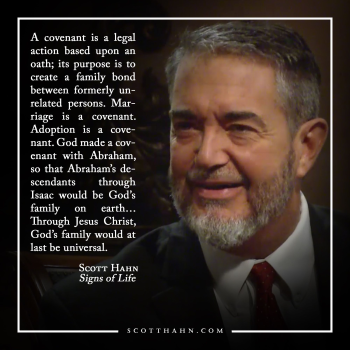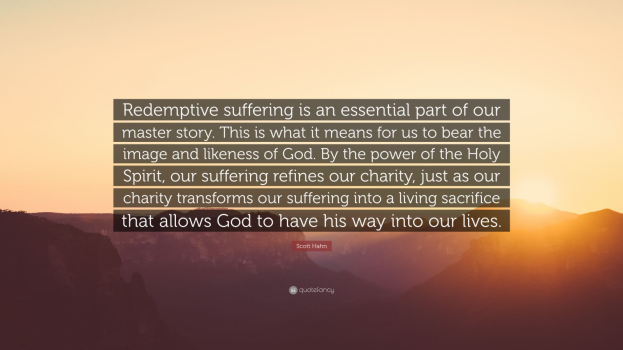Wrangler
Well-Known Member
Not really sure what you are talking about or how it relates to the previous posts.That is how non believers are saved.....begotten of the Father, of His Spirit, not by the will of man.
Anyway, I like good things.
Welcome to Christian Forums, a Christian Forum that recognizes that all Christians are a work in progress.
You will need to register to be able to join in fellowship with Christians all over the world.
We hope to see you as a part of our community soon and God Bless!
Not really sure what you are talking about or how it relates to the previous posts.That is how non believers are saved.....begotten of the Father, of His Spirit, not by the will of man.
I think anyone who loves God with all their heart, soul, and mind, and loves their neighbors as themselves. On what grounds can they be condemned?Christian exclusivity is the core doctrine that only Christians will be saved. "Jesus said to him, 'I am the way, the truth, and the life. No one comes to the Father except through Me.'" John 14:6, NKJV.
The common understanding is that non-Christians are destined for eternity in hell. Is this your understanding - i.e., all Buddhists, Hindus, Muslims, atheists and other non-Christians are destined for hell? Considering the widely different circumstances of people across the globe - the widely different odds of them ever hearing about Jesus in a meaningful way or turning to Him even if they do - I find this difficult if not impossible to believe.
William Lane Craig has suggested that perhaps God has "arranged things" so that those He foreknew would turn to Christ are geographically located so they will hear and respond. A kid born into a Southern Baptist family in the Bible belt and a kid born into a low-caste Hindu family in New Delhi are where they are because God foreknew the former would respond to Jesus and the latter would not. Not very convincing, at least to me.
Calvinism has less of a problem with this issue, it seems to me. All humans are depraved and deserving of hell, God's predestined elect will be saved no matter where they are because this is what God has decreed, and those who aren't saved simply weren't among the elect. All fairly neat and tidy, although perhaps not much different from what Craig suggests.
Universalism has less problem as well. All will eventually be saved, even if it takes eons in hell before some of them turn to God. Exclusivity ultimately isn't exclusive at all!
Another approach that occurred to me is that perhaps "No one comes to the Father except through me" means something different from Christian exclusivity as commonly understood. Perhaps it means Jesus is the gatekeeper - He decides who is saved, but this could include Hindis, Buddhists or anyone else. I recall Billy Graham once causing a furor by suggesting there might be "secret Christians" who didn't even know they were.
After reading a large mountain of theology and apologetics over the decades, I really don't have a satisfactory answer. (Yes, I know, God's ways are not my ways and don't have to make sense to me.)
Some 54 years ago, when I was almost a newbie, the Campus Crusade staff member at our university asked me to fill in for him one night. A girl named Sherry asked, "Do we really think all Buddhists are going to hell?" I responded, "We have to believe and trust that God will deal with Buddhists in a way worthy of who we believe Him to be." I don't think I have a better answer now. Yes, it is kind of punting on the issue - chalking it up to a divine mystery - but I find this more satisfactory than pretending I really believe God is condemning vast swaths of humanity to eternal torment in hell. (Actually, I do the same with the doctrine of hell - whatever hell is, we will see how it is worthy of the God in whom we believe.)
(The next day, the staff member smilingly said "Hey, I don't know what you told Sherry, but it really helped her!" I told him what I'd told her. "Great answer!" he said. "Of course, they ARE all going to hell." I knew then that I probably wasn't Crusade staff material.)
How do you make peace with the doctrine of exclusivity? Or perhaps it doesn't trouble you at all?
All will be judged, and none will have an excuse because all have a conscience and all can hear, in a sense, the word of God. But we know, from experience and from Scriptures, that sin has robbed mankind of the ability to hear God clearly at all times. Jesus said to forgive Israel "for they know not what they do." This means some were forgiven even in their ignorance--even if they died in their ignorance, simply because if they had known what they should do they would've done it.Agree with your post in the main...except one point...I don't see any room in God's word that some can be saved after death....? Bible says it is appointed unto man but once to die and then the judgment. It seems contradictory to say that God wants us to testify so that nobody has an excuse...and then say some have the excuse of ignorance so they can be saved after death? Especially when the word says man is without excuse because even creation itself testifies of Him.
As I understand UR, the age of restoration is curative, not punitive.Universalism has less problem as well. All will eventually be saved, even if it takes eons in hell before some of them turn to God. Exclusivity ultimately isn't exclusive at all!
Great topic. I agree that this is an issue.How do you make peace with the doctrine of exclusivity? Or perhaps it doesn't trouble you at all?
I don't buy that as a caveat to salvation.(if we endure to the end)
The serpent (Satan), Pharoah, and Judas (among others) all played a role in the story of the Fall of humankind,Ro 9:14–18 By no means! For he says to Moses, “I will have mercy on whom I have mercy, and I will have compassion on whom I have compassion.” So then it depends not on human will or exertion, but on God, who has mercy. For the Scripture says to Pharaoh, “For this very purpose I have raised you up, that I might show my power in you, and that my name might be proclaimed in all the earth.” So then he has mercy on whomever he wills, and he hardens whomever he wills.
Well...I'm not going to tell Yahweh that He made a mistake by letting someone in that never knew His Son.
Hey...I suppose the ancient paths can appear to be fresh in a renewed way. The truth is dynamic...and cannot be boiled down to a creed like a box to be checked off.
The holy walk was there in the garden of Eden. Adam before the fall. And the righteous walk began with Abel. But the ancient paths have never been acceptable to men. These prefer a sort of hybrid... with the maximum reward of holiness for the minimum requirement in righteousness. Neither standard is met in this way.
“Thus says the LORD, Stand in the ways, and see, and ask for the old paths, where is the good way, and walk therein, and you shall find rest for your souls. But they said, We will not walk therein.” Jer. 6:16
That's because the paths are eternal. Olam. Netivot olam "eternal paths". God has always been holy. And He has always been righteous. We, for the most part have been neither of these. That's why we need to discover God and His ways.The Christian beginnings are not 'the ancient path' per se. The coming of the Christ is always a course correction. Someone comes along (anointed by the spirit) and sets things straight. We see this with Jesus, in his dealings with the religious leaders-- and we've seen it many times when 'the word' came to this prophet and that one--- and they too, made course corrections.
The old paths were already old, when Jeremiah referenced them.
Who are we to question God and his decisions when it comes by the promise of doing away with the devil in Genesis? He promised he would have his crushed in. He is now down away with, in the lake of fire.The serpent (Satan), Pharoah, and Judas (among others) all played a role in the story of the Fall of humankind,
the Exodus and the Redemption of humankind. Should they be punished?
Someone wrote: Christian exclusivity is the core doctrine that only Christians will be saved. "Jesus said to him, 'I am the way, the truth, and the life. No one comes to the Father except through Me.'" John 14:6, NKJV.As I understand UR, the age of restoration is curative, not punitive.
Painful to deal with the stuff we need to be healed from, but not in the sense of retributive punishment or coercive torture.
Imagine a psychology session with one that knew you inside and out, someone you couldn't lie to.
Someone that knew and understood all the wounds you have received in this life. The great physician.
Great topic. I agree that this is an issue.
We cannot come to God until he draws us. Eventually everyone will be drawn.
Every knee will bow and every tongue confess.
In heaven, on earth and under the earth. (the realm of the dead) - (Philippians 2:10-11)
John 12:32 NIV
And I, when I am lifted up[a] from the earth, will draw all people to myself.”
/
Who are we to question God and his decisions when it comes by the promise of doing away with the devil in Genesis? He promised he would have his crushed in. He is now down away with, in the lake of fire.
What is the lake of fire? Does it comes from God?
Does God punish people? Or does he get his vengeance in order for justice to be served? By the use of other faithful believers who find the person who did the crime? God used even unbelievers and Satan to get his will done with having Israel wiped out. There is tells of Yahava mention to kill others even in the Old Testament? Jesus even speaks about killing of children in one of the addressed Churches in revelation.
I will strike her children dead. Then all the churches will know that I am he who searches hearts and minds, and I will repay each of you according to your deeds.
Was God wrong to have those things done?
@St. SteVen
The quote doesn't have to be absolute truth to be truthful. God is all merciful and all just, and neither of these truthful attributes fit well with a wrathful God concept. "Wrath" is a human attribute, so the term in context is not literal, but an anthropomorphism. (Britannica)Not sure why you desired to share with me, this quote by this man, Scott Hahn. It’s understandable that people admire people who are passionate and write about things pertaining to God. It doesn’t make however what someone says absolute truth.
Well, that's a relief.@St. SteVen would you say Gods wrath is part of his love? @Illuminator, I do not believe Gods wrath abides on anyone anymore, personally.
The quote makes no mention of covenants or Israel.The curses Scott talked about, by Gods own covenant which he made a promised with Himself, the promise of cutting the tree down with the Ax(Israel), was done when Gods wrath was poured out on the tribes of Israel which are no more.
The quote makes no mention of Spiritual Egypt or Revelation.There were plagues that fell upon them as promised, similar to what happened to Egypt because in Jesus day and onward they continued to progress being signified as Spiritual Egypt, in Revelation.
Yea, and Jesus will literally smite all the bad guys with a sword flying out His mouth.I do not find anything about Gods love pertaining to his wrath; when his wrath is a promise to come upon the Nation of Israel, and doesn’t abide on anyone anymore, unless Jesus hasn’t come back yet and then yeah the wrath of God still abides.
A couple of things that hit my mind as I look at your post are...Christian exclusivity is the core doctrine that only Christians will be saved. "Jesus said to him, 'I am the way, the truth, and the life. No one comes to the Father except through Me.'" John 14:6, NKJV.
The common understanding is that non-Christians are destined for eternity in hell. Is this your understanding - i.e., all Buddhists, Hindus, Muslims, atheists and other non-Christians are destined for hell? Considering the widely different circumstances of people across the globe - the widely different odds of them ever hearing about Jesus in a meaningful way or turning to Him even if they do - I find this difficult if not impossible to believe.
William Lane Craig has suggested that perhaps God has "arranged things" so that those He foreknew would turn to Christ are geographically located so they will hear and respond. A kid born into a Southern Baptist family in the Bible belt and a kid born into a low-caste Hindu family in New Delhi are where they are because God foreknew the former would respond to Jesus and the latter would not. Not very convincing, at least to me.
Calvinism has less of a problem with this issue, it seems to me. All humans are depraved and deserving of hell, God's predestined elect will be saved no matter where they are because this is what God has decreed, and those who aren't saved simply weren't among the elect. All fairly neat and tidy, although perhaps not much different from what Craig suggests.
Universalism has less problem as well. All will eventually be saved, even if it takes eons in hell before some of them turn to God. Exclusivity ultimately isn't exclusive at all!
Another approach that occurred to me is that perhaps "No one comes to the Father except through me" means something different from Christian exclusivity as commonly understood. Perhaps it means Jesus is the gatekeeper - He decides who is saved, but this could include Hindis, Buddhists or anyone else. I recall Billy Graham once causing a furor by suggesting there might be "secret Christians" who didn't even know they were.
After reading a large mountain of theology and apologetics over the decades, I really don't have a satisfactory answer. (Yes, I know, God's ways are not my ways and don't have to make sense to me.)
Some 54 years ago, when I was almost a newbie, the Campus Crusade staff member at our university asked me to fill in for him one night. A girl named Sherry asked, "Do we really think all Buddhists are going to hell?" I responded, "We have to believe and trust that God will deal with Buddhists in a way worthy of who we believe Him to be." I don't think I have a better answer now. Yes, it is kind of punting on the issue - chalking it up to a divine mystery - but I find this more satisfactory than pretending I really believe God is condemning vast swaths of humanity to eternal torment in hell. (Actually, I do the same with the doctrine of hell - whatever hell is, we will see how it is worthy of the God in whom we believe.)
(The next day, the staff member smilingly said "Hey, I don't know what you told Sherry, but it really helped her!" I told him what I'd told her. "Great answer!" he said. "Of course, they ARE all going to hell." I knew then that I probably wasn't Crusade staff material.)
How do you make peace with the doctrine of exclusivity? Or perhaps it doesn't trouble you at all?
I think that the 'one verse' that says "(if we endure to the end)" is referring to those at the beginning of the chapter.Is there another verse that says 'we must endure to the end'?I don't accept any doctrine that is not supported by at least two witnesses. Therefore, I don't accept a popular belief based on one proof-text.
The bottom line in any discussion about who we (if we endure to the end) will see on the New Earth. We are already told that we do not have the mind of God or any of his Godly powers. Knowing that, I keep this in mind:
Look at the definition of the words MERCY and COMPASSION in that verse.Ro 9:14–18 By no means! For he says to Moses, “I will have mercy on whom I have mercy, and I will have compassion on whom I have compassion.” So then it depends not on human will or exertion, but on God, who has mercy. For the Scripture says to Pharaoh, “For this very purpose I have raised you up, that I might show my power in you, and that my name might be proclaimed in all the earth.” So then he has mercy on whomever he wills, and he hardens whomever he wills.
I'm not going to tell Yahweh that He made a mistake by letting someone in that never knew His Son.
Please re-read the quote, You missed the point entirely. It's not the content of the quote that bothers you as much as who wrote it.
Why? Because it contradicts your opinion of Judgment? Why don't you address the context instead of airhead generalities?I dont know Scott. I have no desire to reread the quote.
The bible mentions things that were mentioned by myself.
It's all good mate, I do not desire to go and check the mans stuff out. By all means he is a person who is a faithful believer, as far as I know. I just do not agree with his quote because its context is messed up, in my opinion.






Why? Because it contradicts your opinion of Judgment? Why don't you address the context instead of airhead generalities?
Scott Hahn is NOT anti-Protestant, so there is no need to be afraid of him. Here's a few more quotes for you to run fromView attachment 42332View attachment 42333
View attachment 42335
View attachment 42336

Scott Hahn - Wikipedia
en.wikipedia.org


